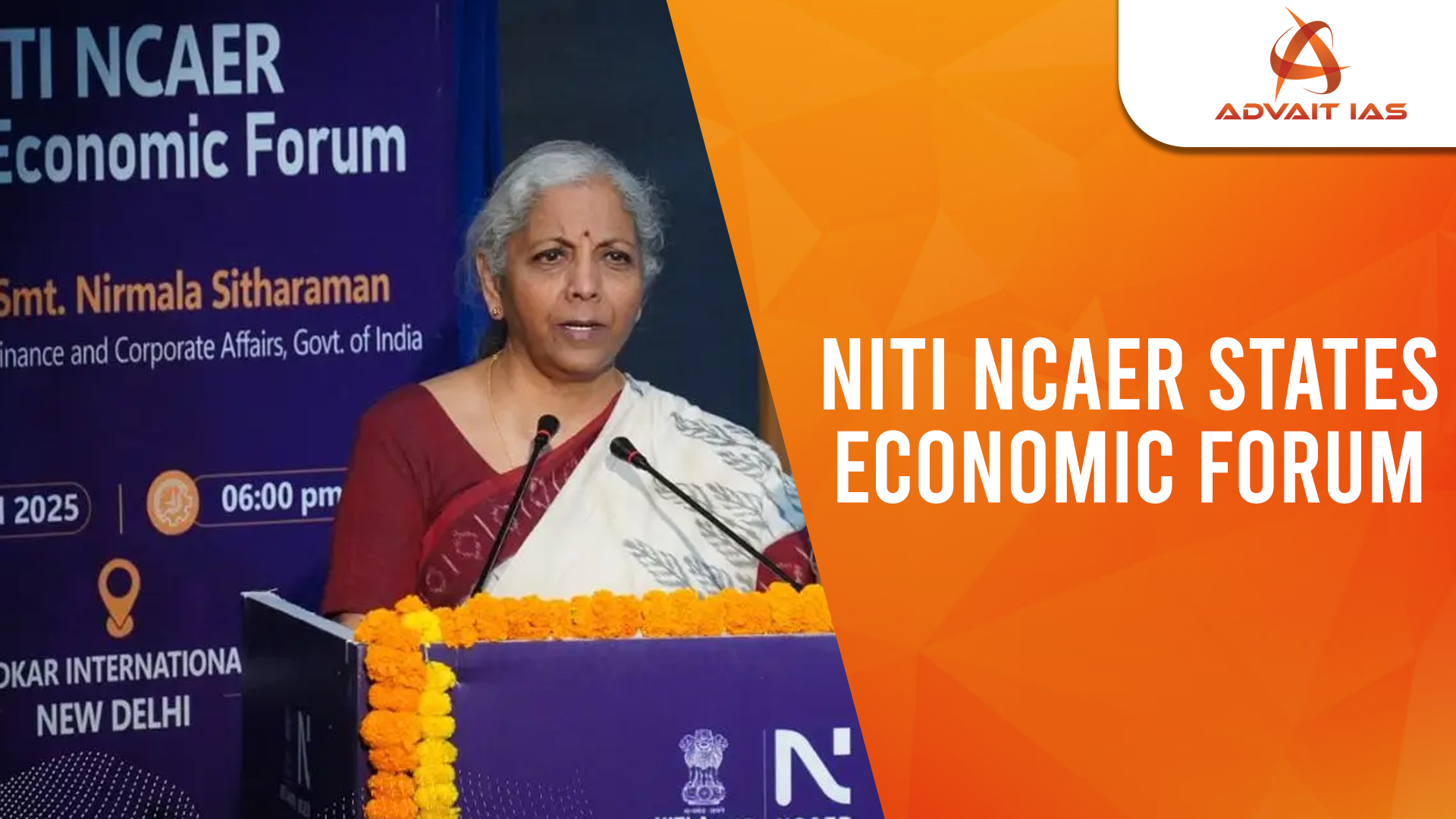Under the Ministry of Finance, NITI Aayog in partnership with the National Council of Applied Economic Research (NCAER) has launched NITI NCAER States Economic Forum.
- Purpose: A portal aggregating data and analysis on State finances.
- Focus Areas:
- State-wise macroeconomic indicators: tax and non-tax revenues.
- Human development statistics: school dropout rates, literacy levels, employment.
- Historical trends in central fund devolution.
Objective:
- To serve as a centralised data hub for tracking state-level trends.
- To aid researchers, policymakers, and academics in comparative analysis and development planning.
- To encourage data-driven policy discussions and fiscal transparency.
Key Components of the Portal:
- State Reports: Covers 28 States and structured around demography, economic structure, socio-economic and fiscal indicators.
- Data Repository: Access to raw and categorised data under 5 verticals: Demography, Economic Structure, Fiscal, Health, and Education.
- State Fiscal and Economic Dashboard: Visualizes key economic trends and provides easy access to graphs, summaries, and downloadable datasets.
- Research and Commentary: In-depth analyses and expert views on state finances and fiscal policies. This supports long-term academic and policy research.
Significance in the Context of Centre-State Relations
- Timely Move:
- Comes at a time of renewed scrutiny of Centre-State fiscal federalism, especially in southern states.
- Addresses long-standing flashpoints around fiscal relations and resource allocation.
- Data Presentation:
- Not new data but restructured from established sources like the 2011 Census, Periodic Labour Force Survey, and RBI’s State Finances Report.
- Comparative presentation across states provides clarity on fiscal disparities and development trends.
Strengths of the Portal
- Data Organization:
- User-friendly, comparative format enhances accessibility.
- Helps anchor debates (e.g., revenue-sharing, parliamentary delimitation) in empirical facts.
- Facilitating Evidence-Based Governance:
- Encourages informed discussions on fiscal federalism and governance issues.
Challenges and Limitations
- Data Quality Concerns:
- Relies on existing sources, which may have limitations regarding accuracy and timeliness.
- Risk of Oversimplification:
- Complex fiscal issues may be reduced to data points without addressing underlying political dynamics.
Role of States and Institutions
- Importance of State Engagement:
- Effective use depends on active participation by states, especially through bodies like the Sixteenth Finance Commission.
- Translating Data into Policy:
- Regional data must inform policies for fair representation, resource allocation, and administrative responsibilities.
The portal is a tool to foster informed discussions on governance, development, and the future of Indian federalism.






